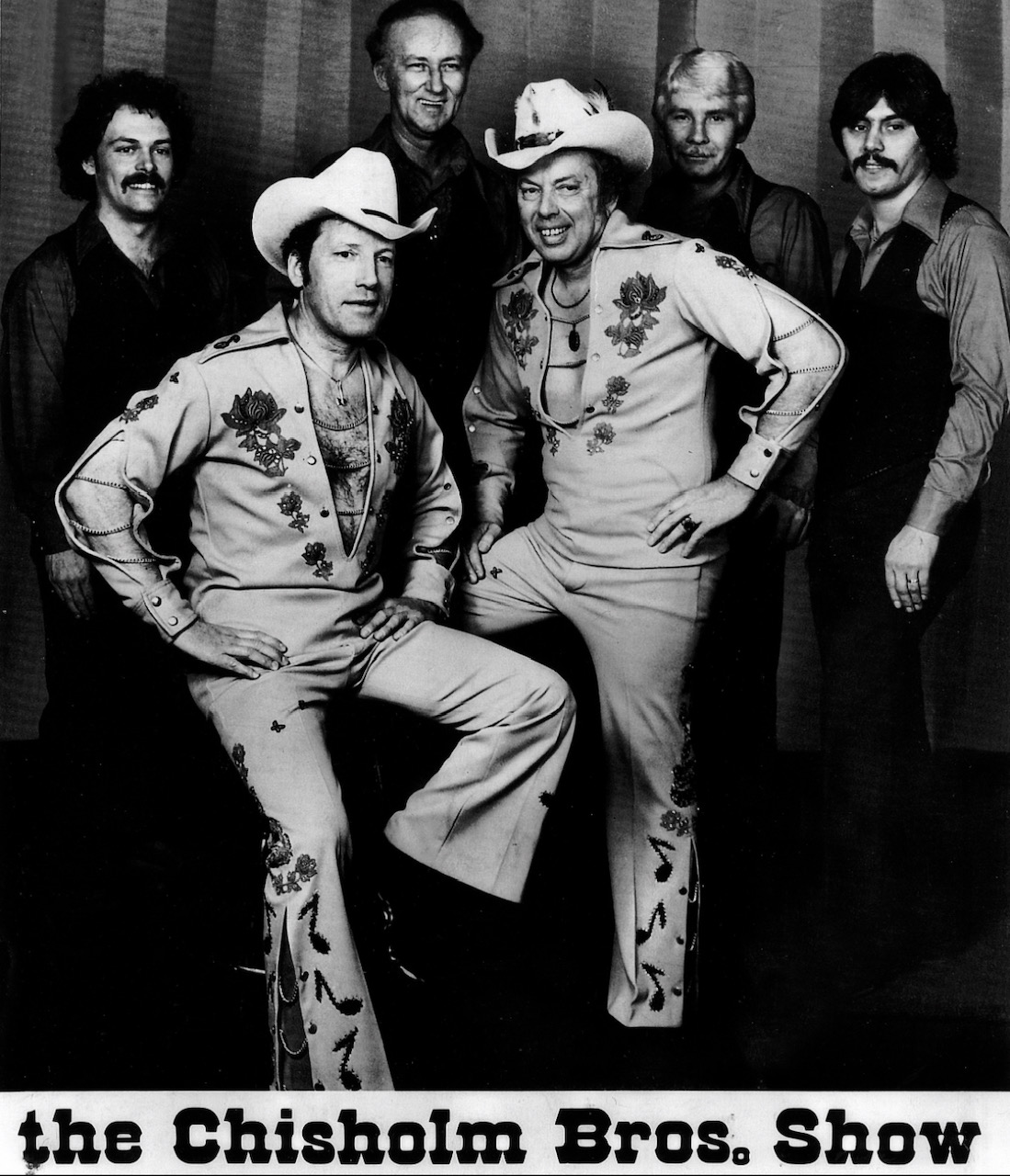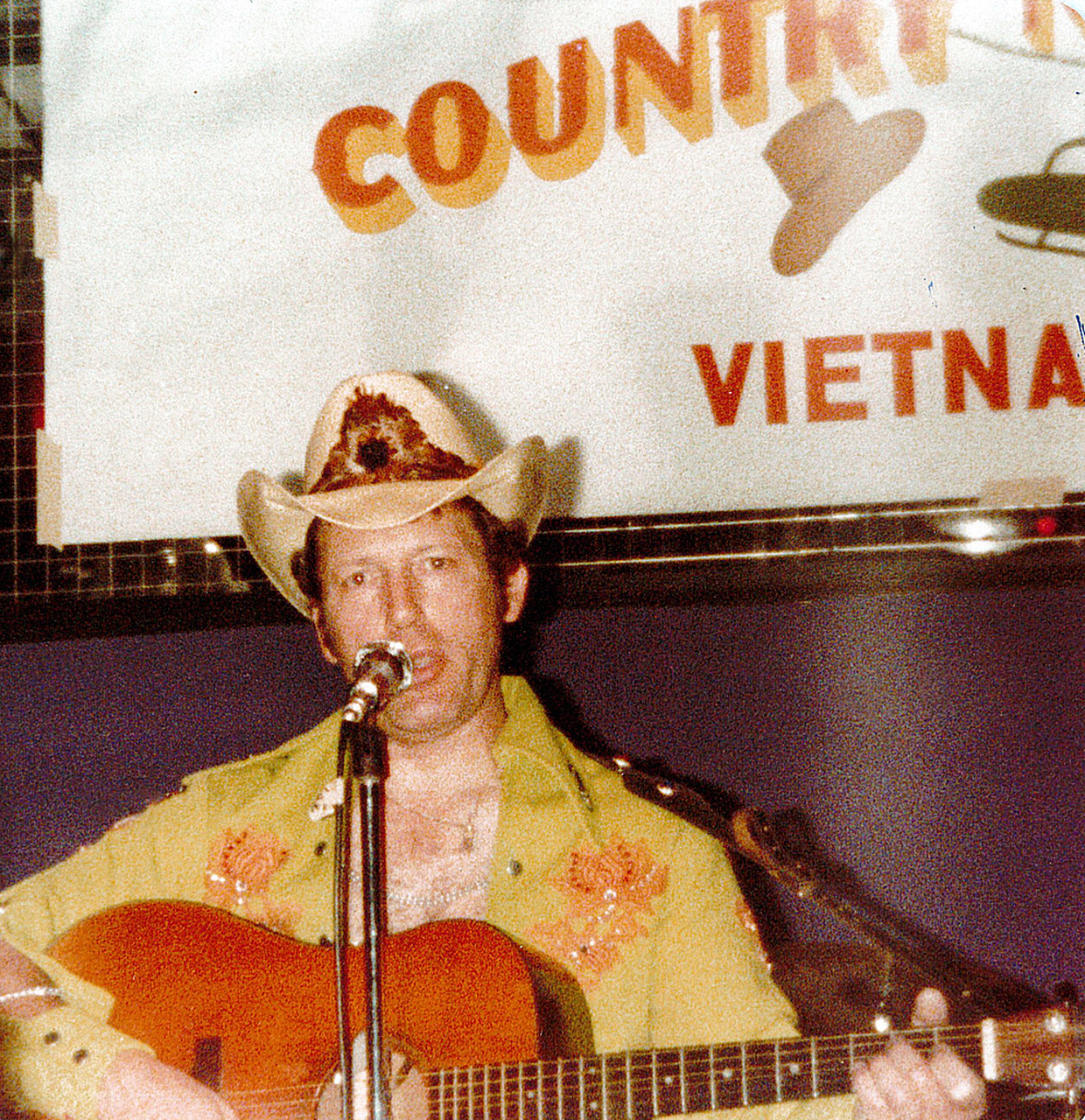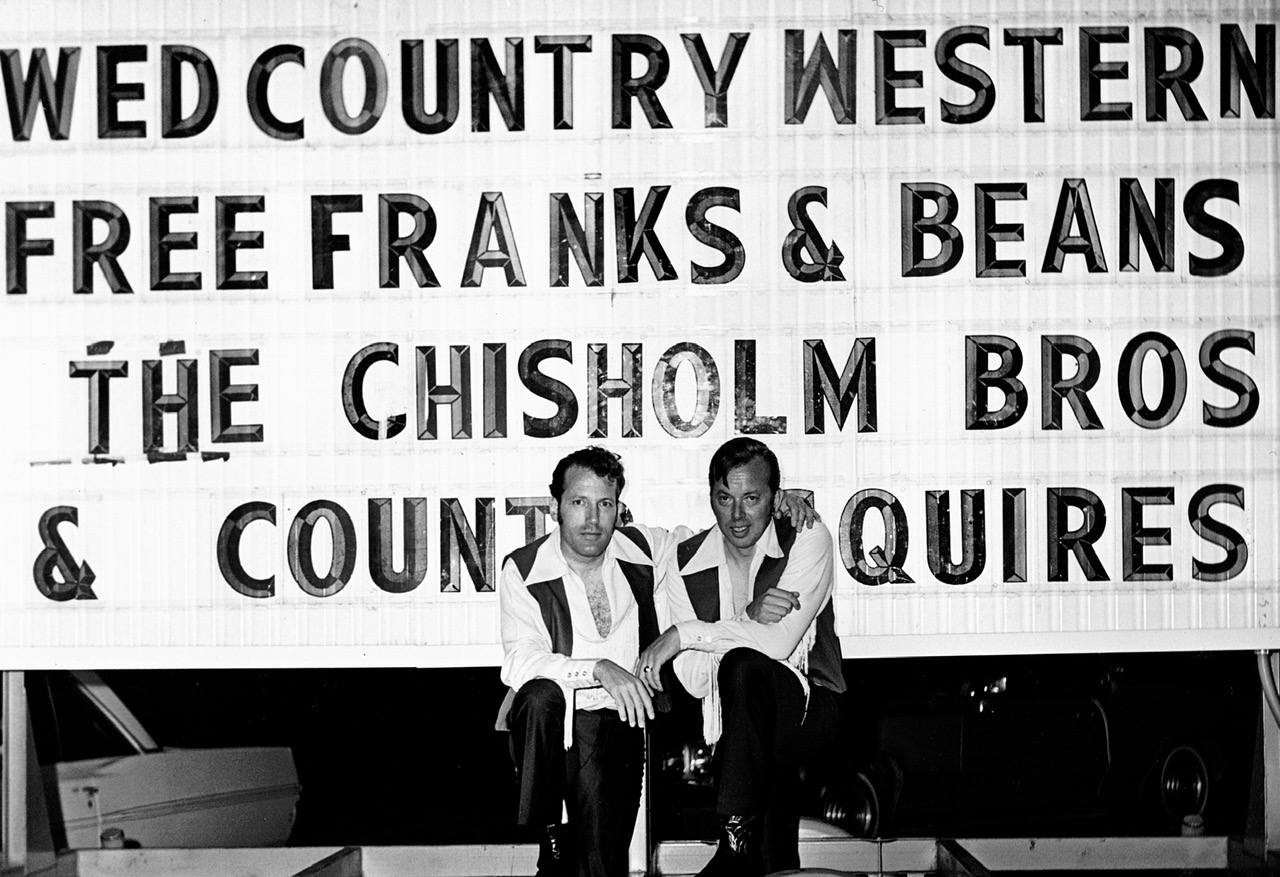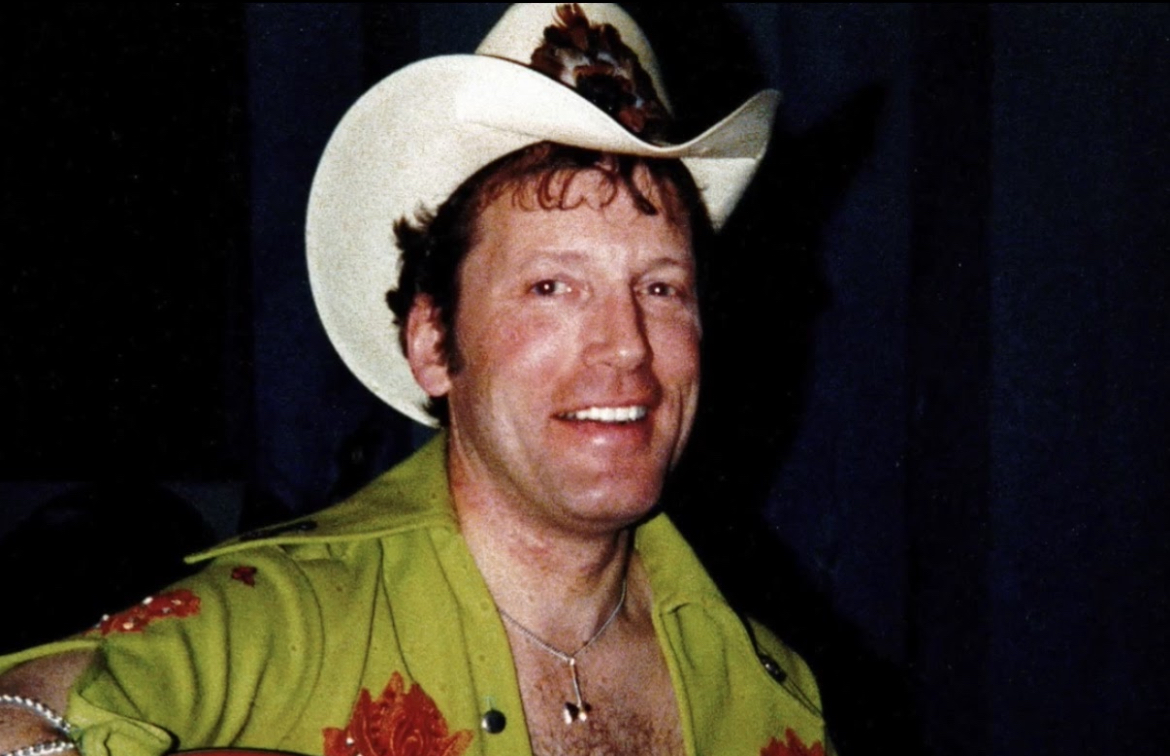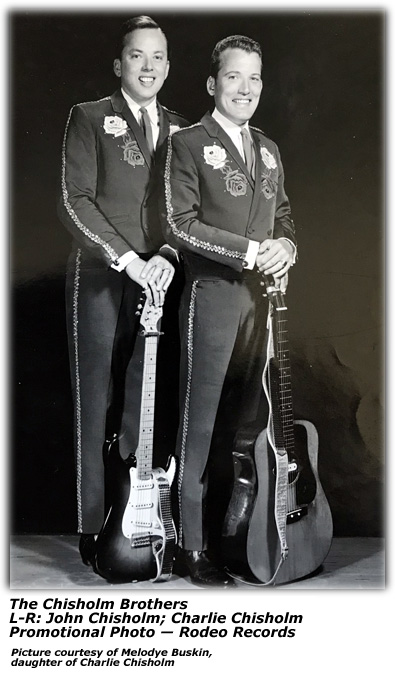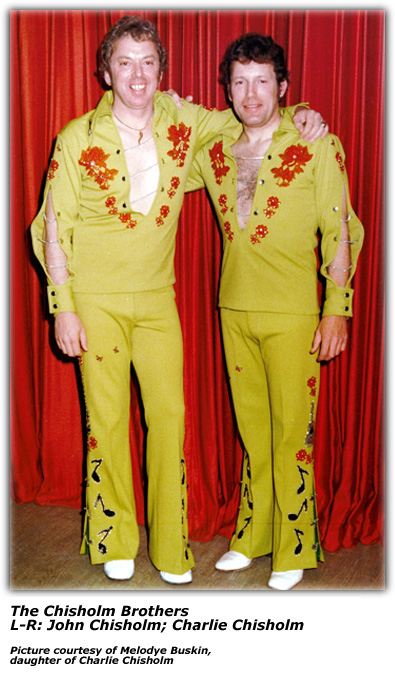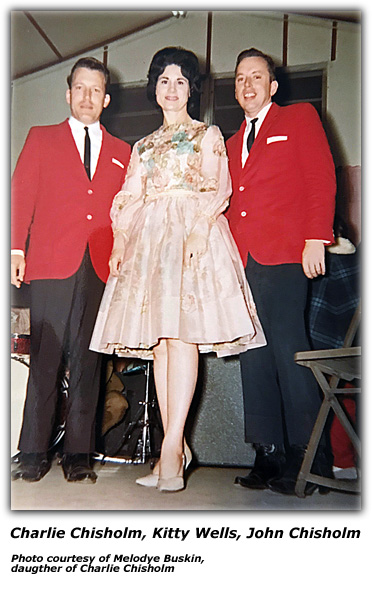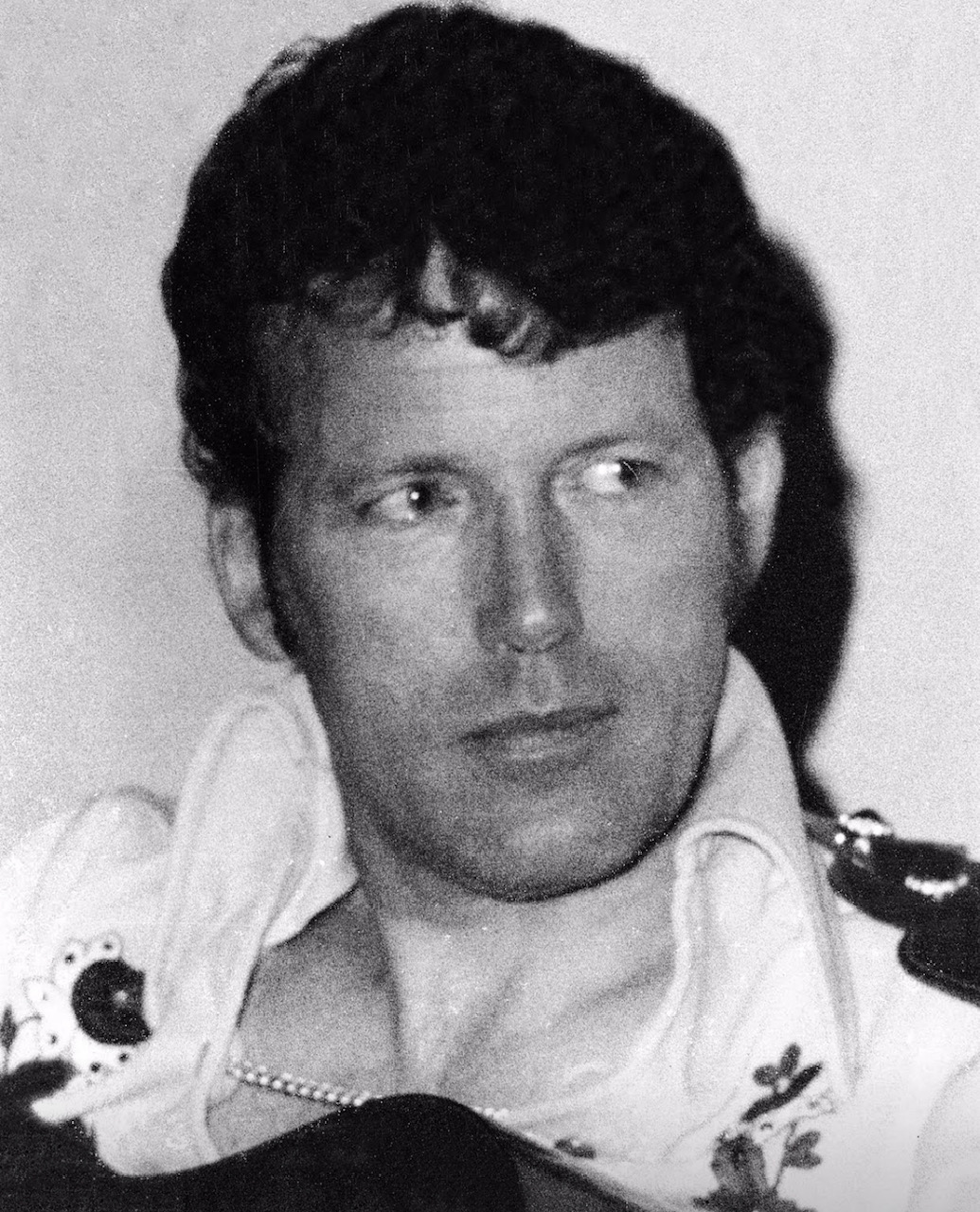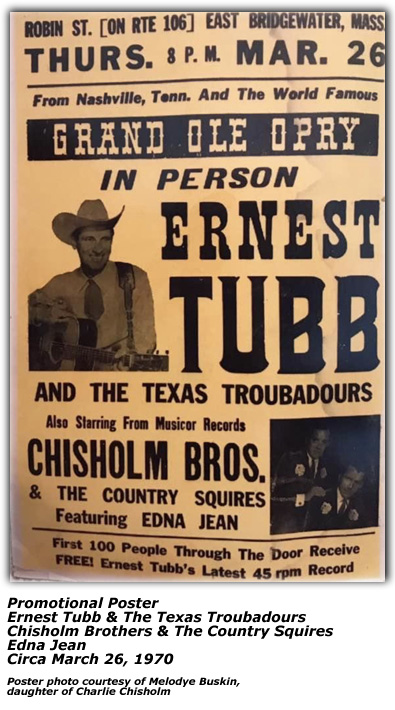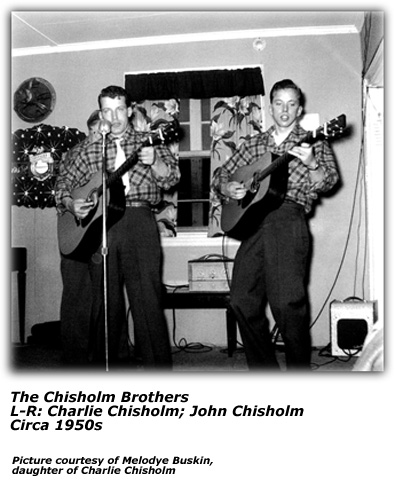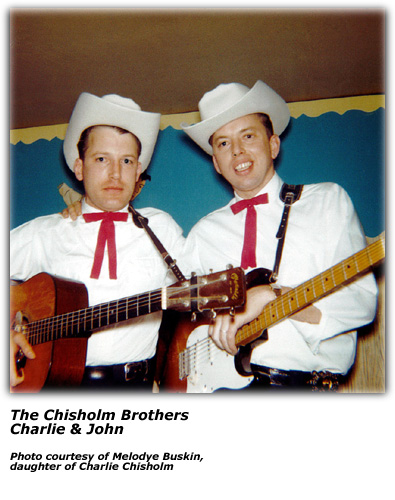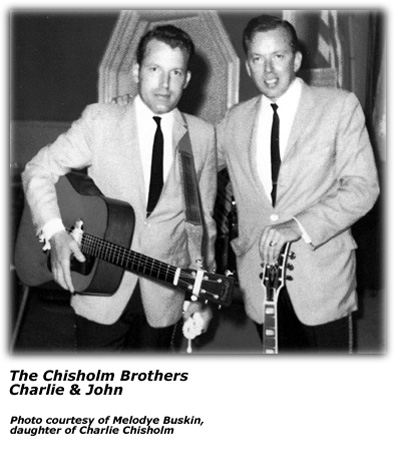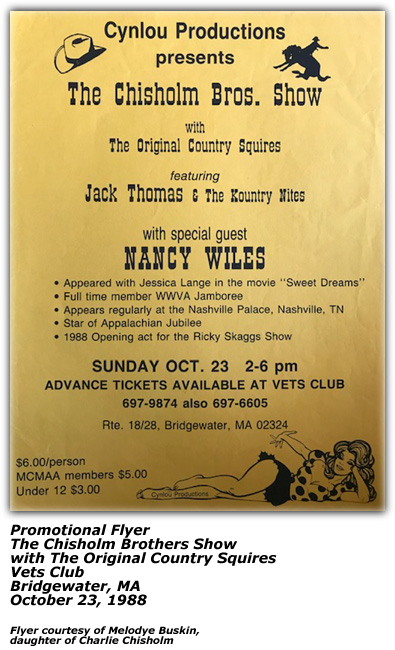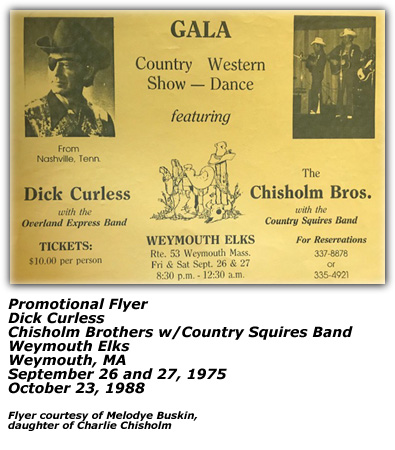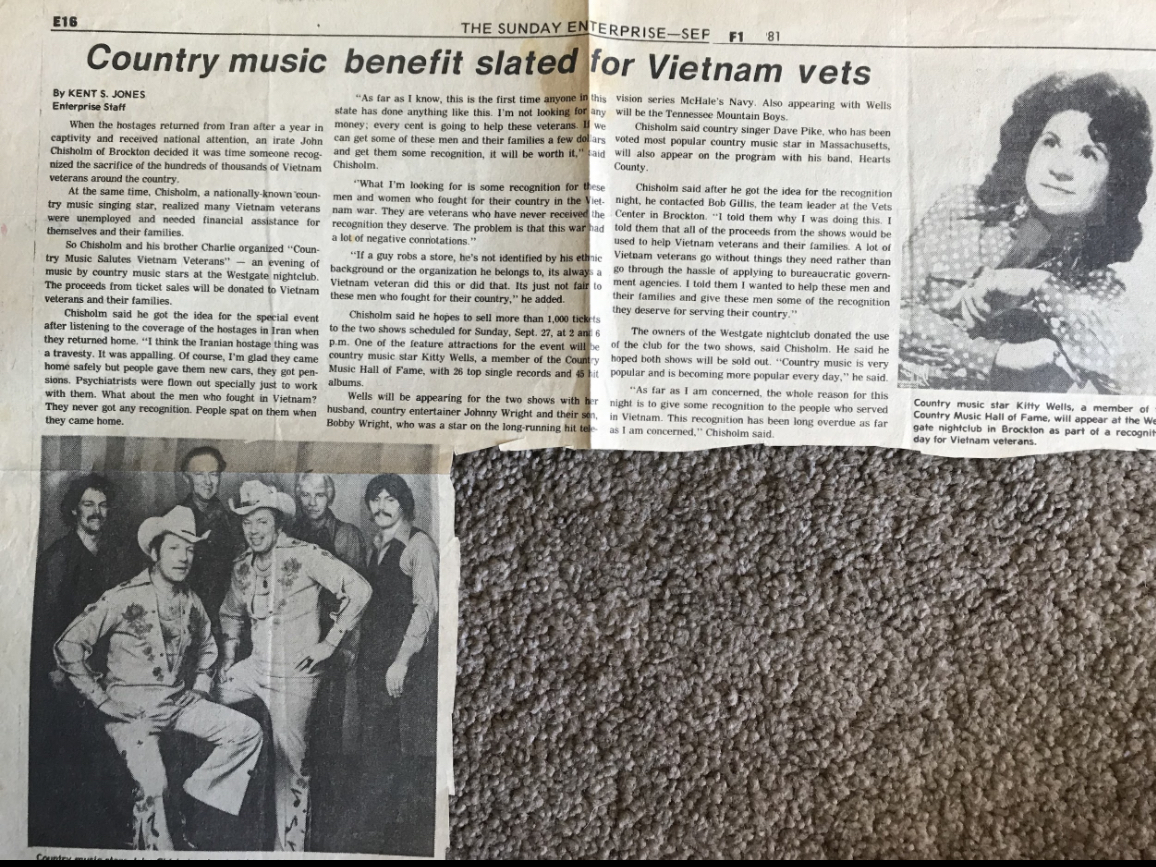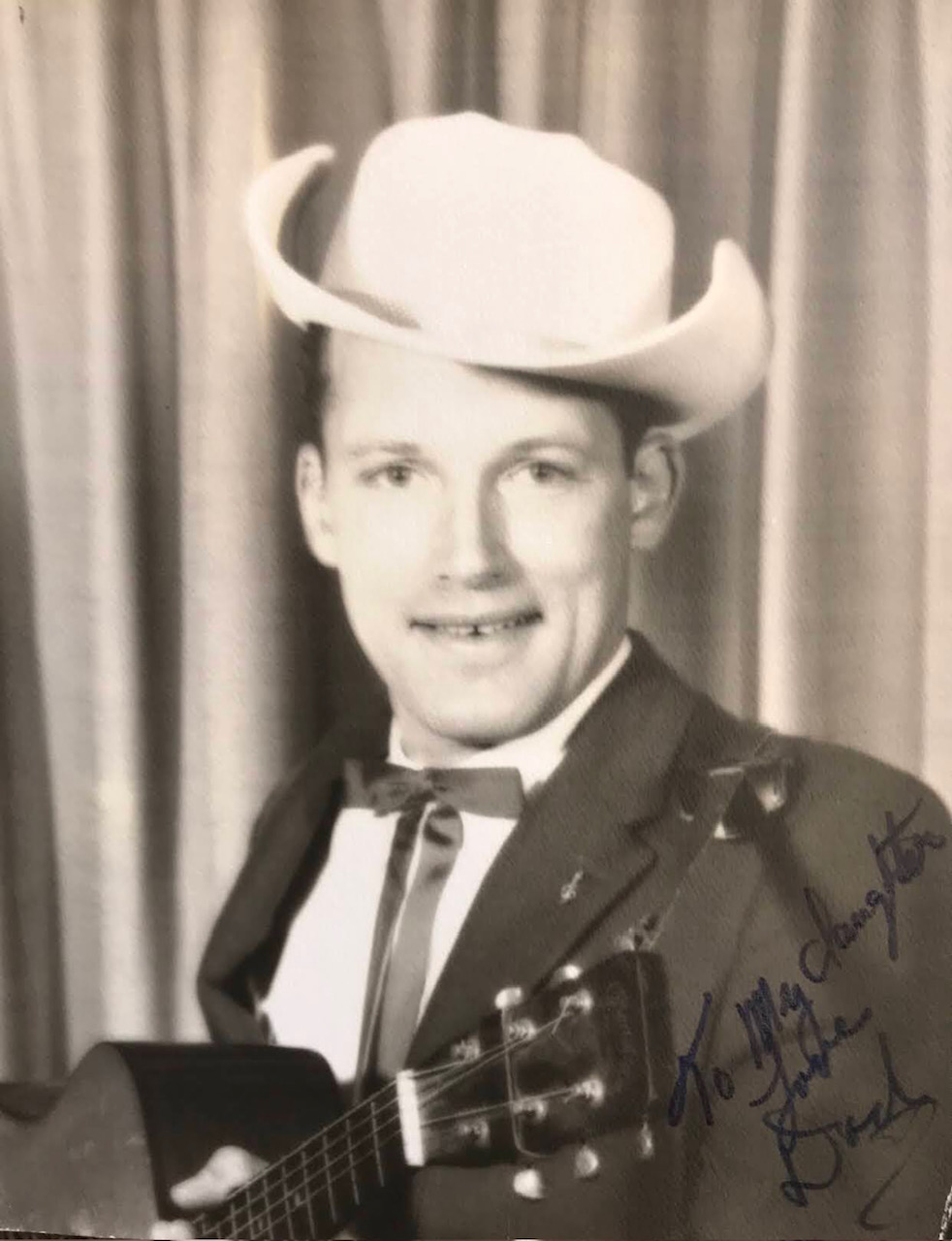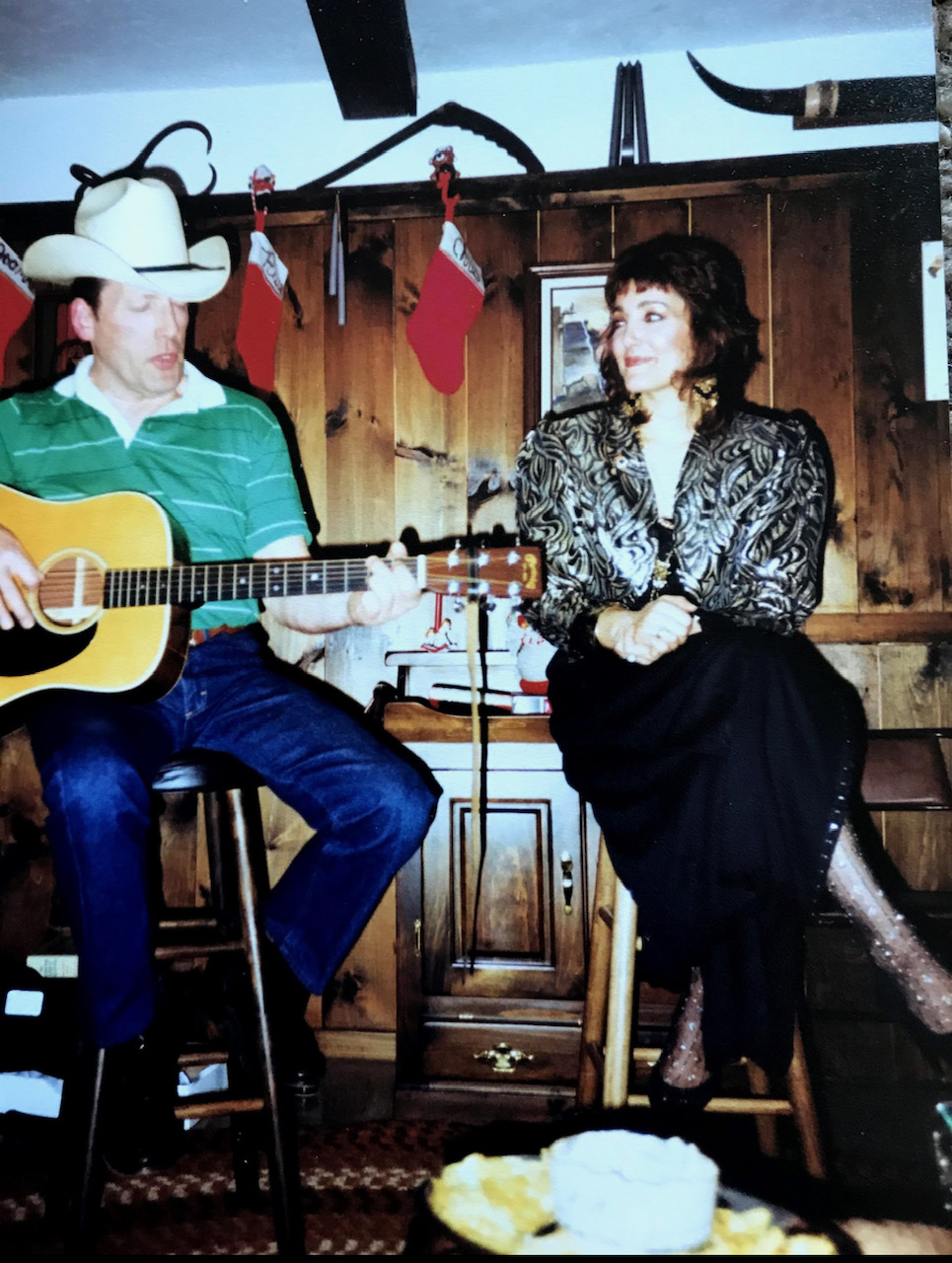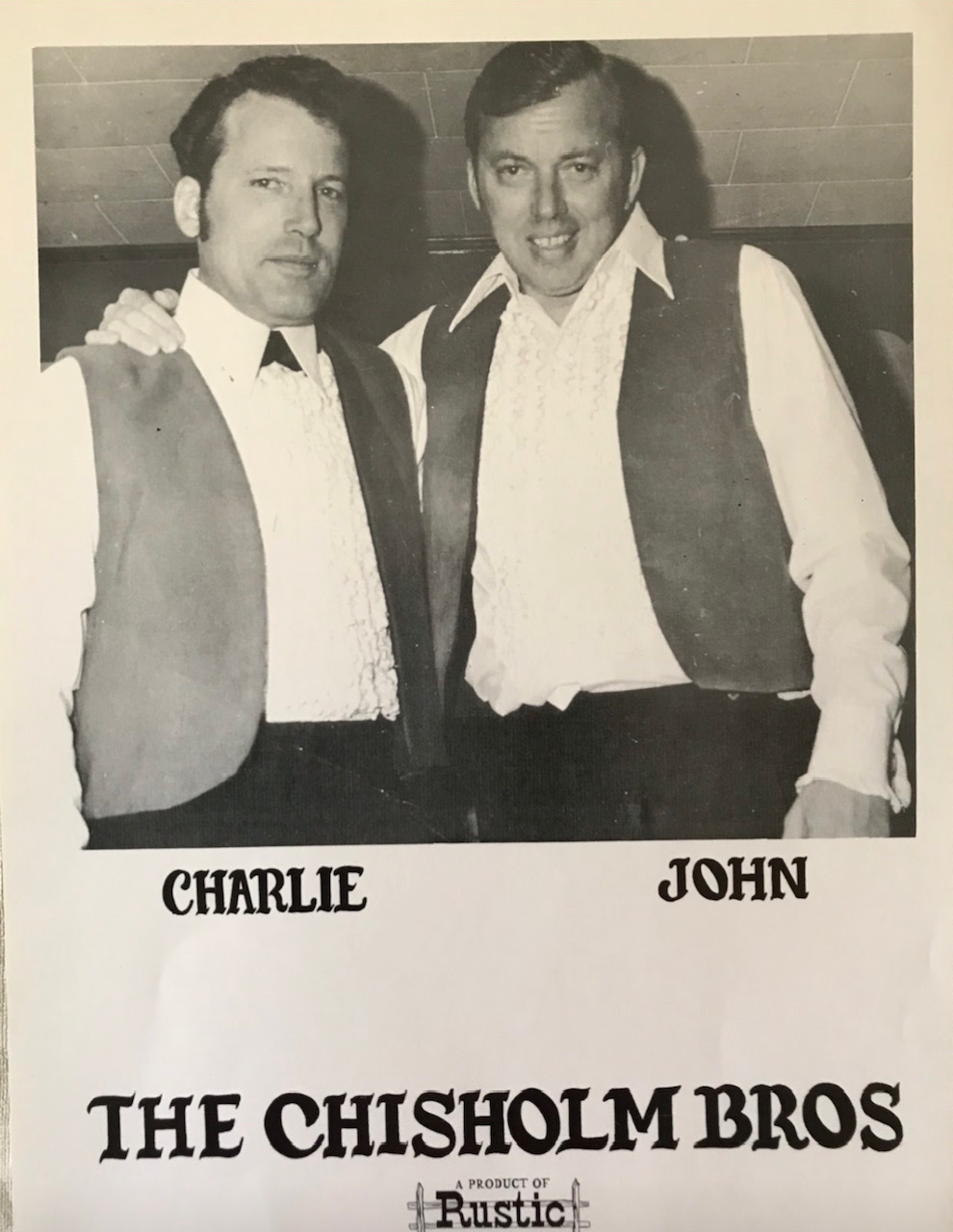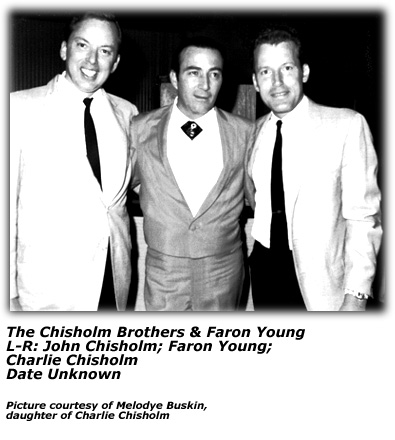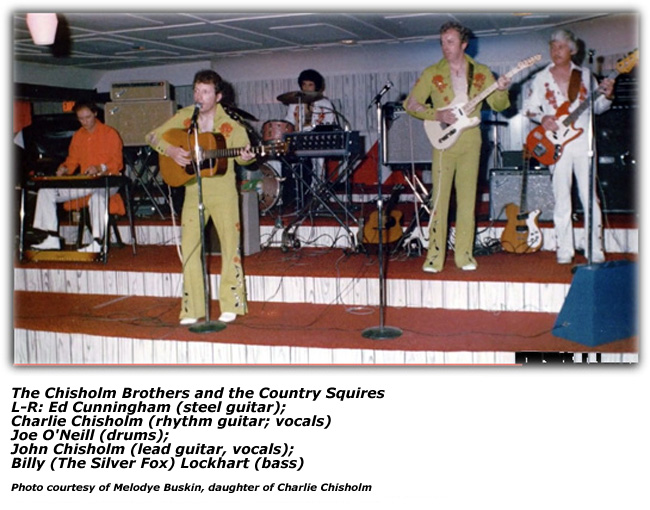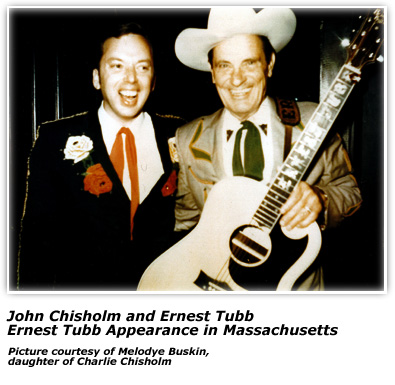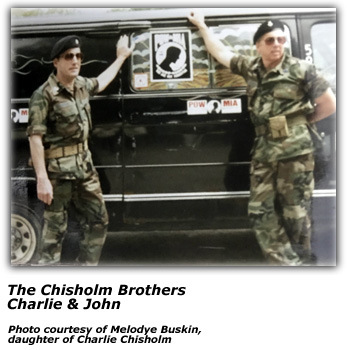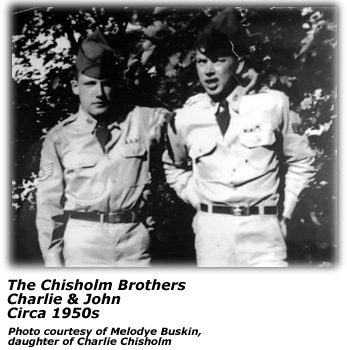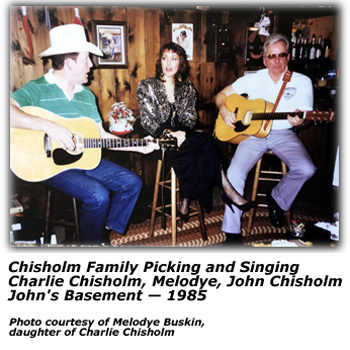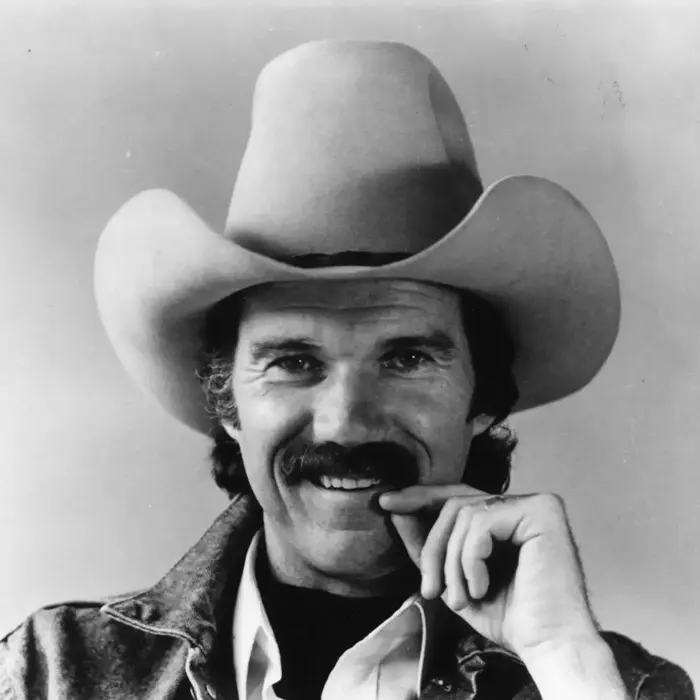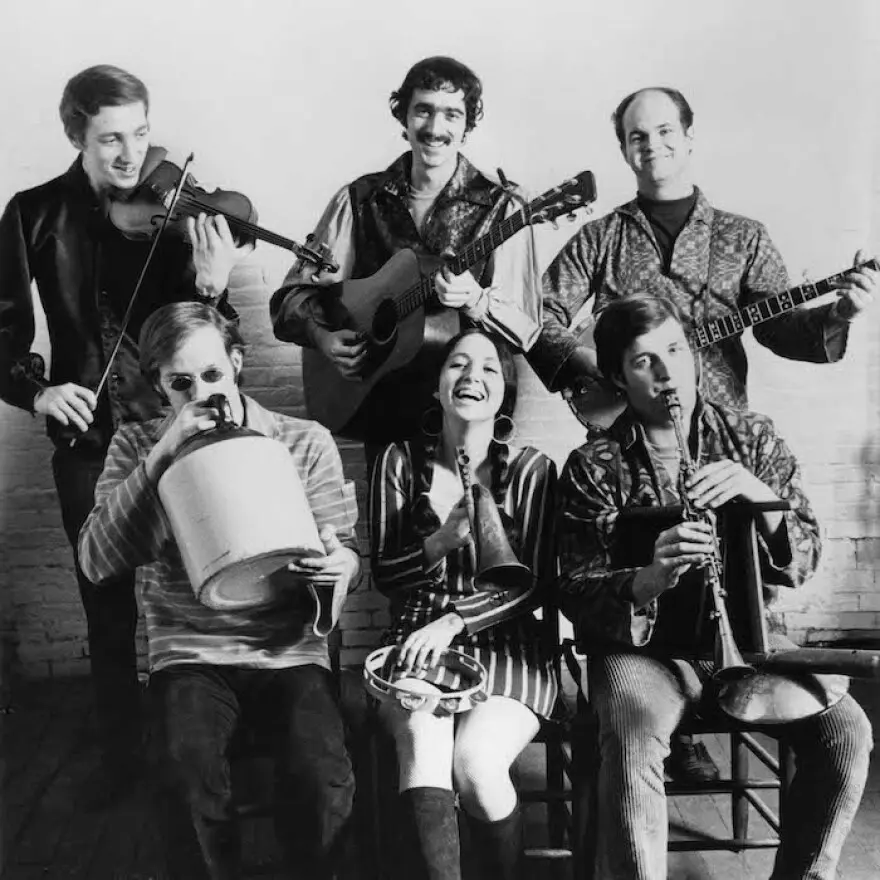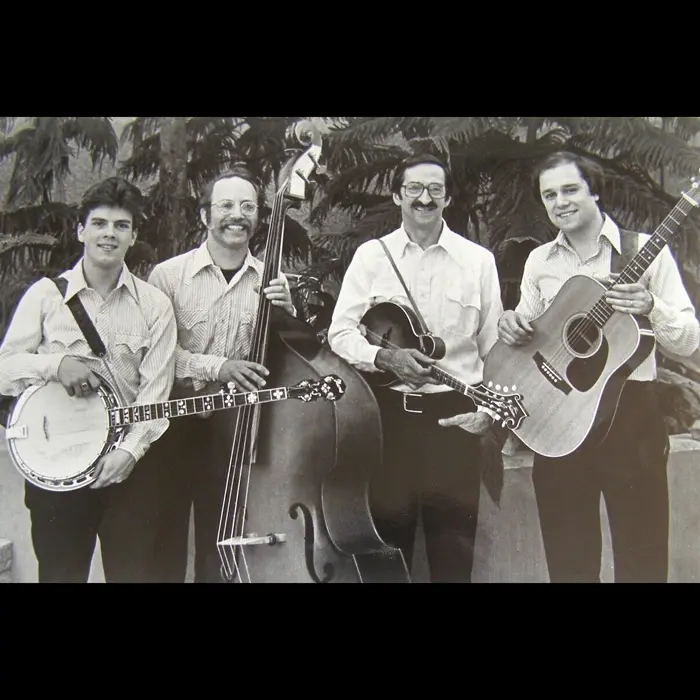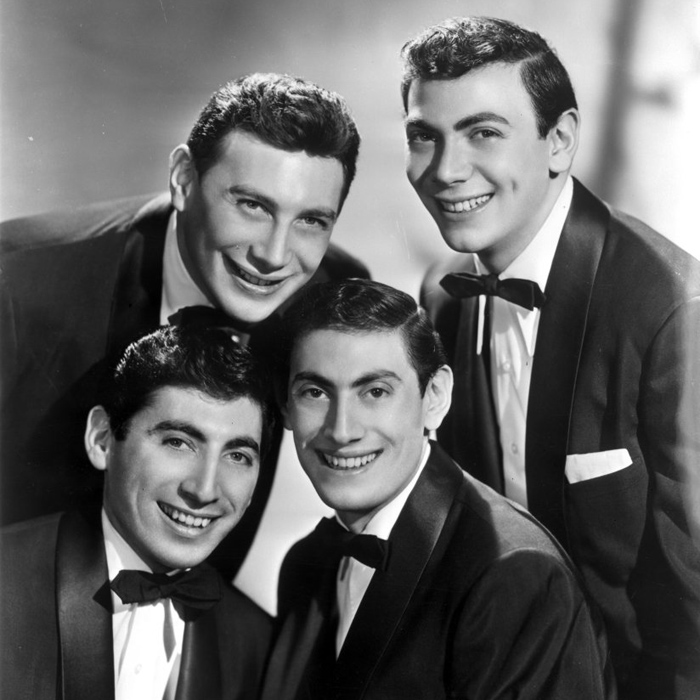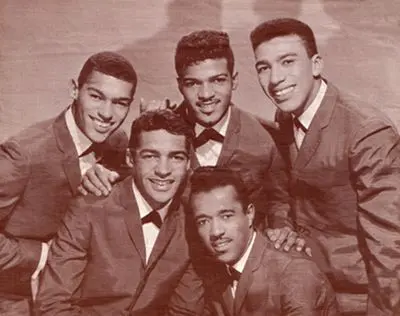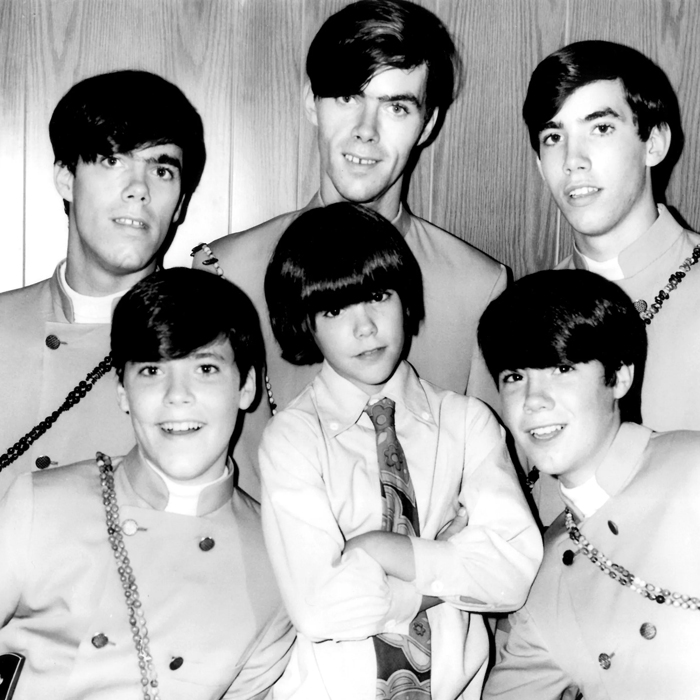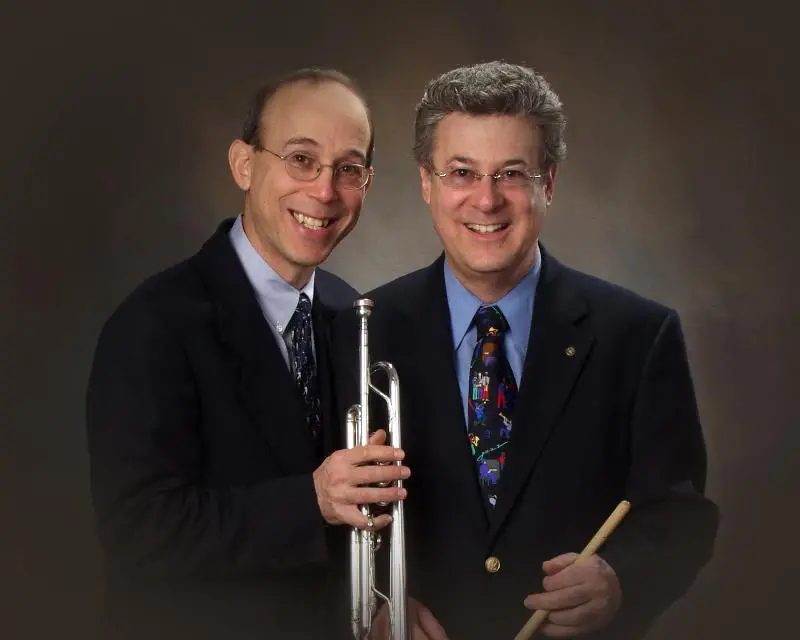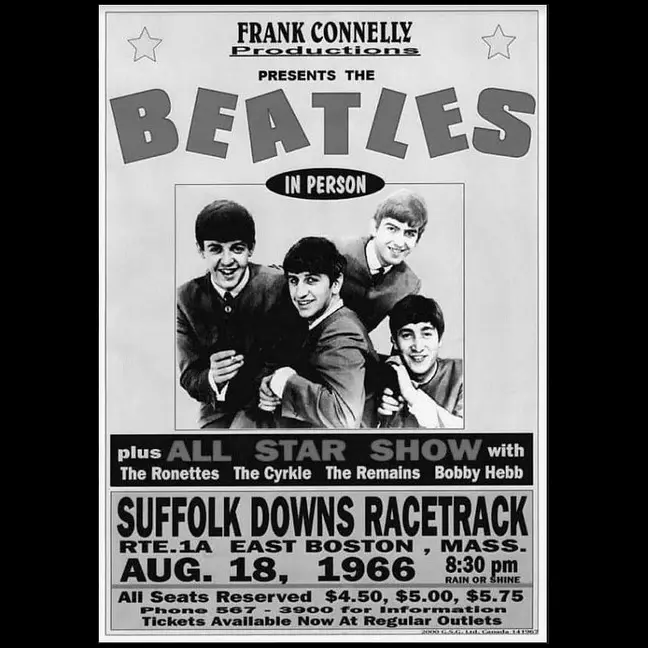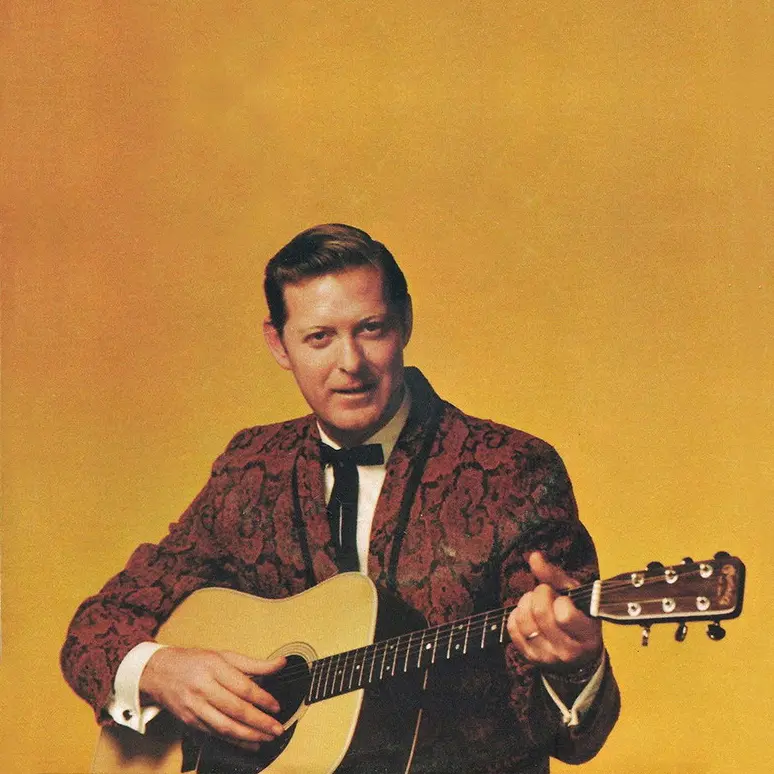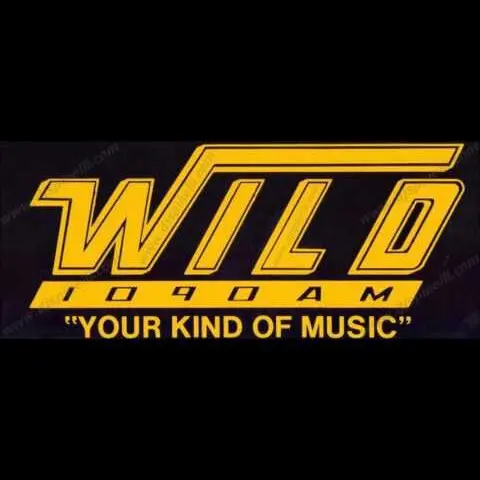The Chisholm Brothers
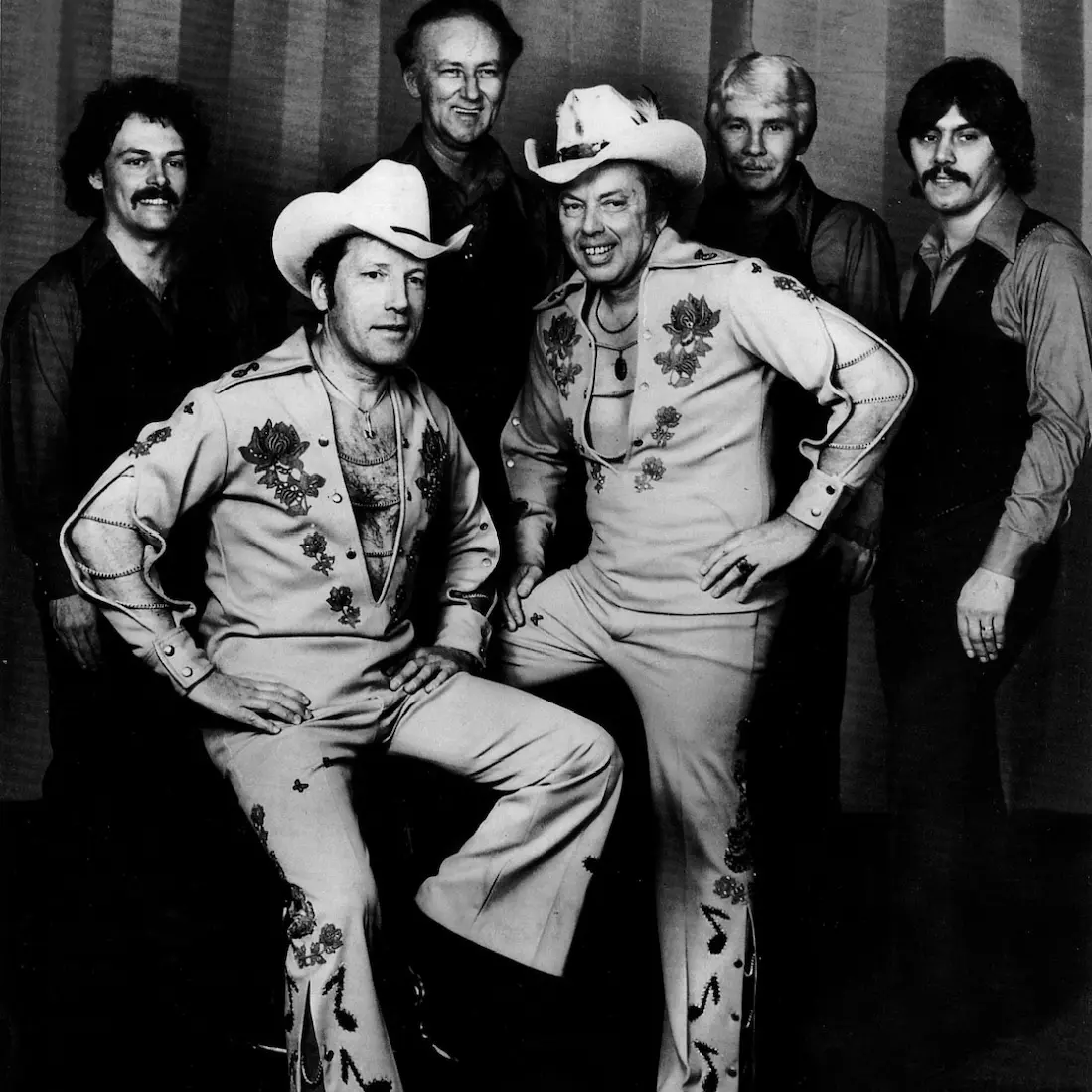
From The Ames Brothers, The Lane Brothers and The Shaw Brothers to The G-Clefs, The Cowsills and Bill & Bo Winiker, New England has given birth to more than its fair share of fraternal singing groups. And while they didn’t top the national charts like some of their regional contemporaries, Massachusetts-based duo The Chisholm Brothers were among the most in-demand country acts anywhere in the Northeast from the mid-‘50s to the mid-‘80s, when the genre was evolving from its rough-edged roots into the pristinely polished countrypolitan sounds of today.
With their combination of blood harmony and twin Martin guitars, the pair played an instrumental role in popularizing country music in New England – like Jim Kweskin did with jug music and Joe Val did with bluegrass – and demonstrated a lifelong devotion to their country and community rivaled by few artists of any genre. To mark their unique significance in New England’s musical back pages, the Massachusetts Country Music Awards Association inducted The Chisholm Brothers into their Hall of Fame in 1982.
MUSICAL BEGINNINGS
Charlie and John Chisholm were born in Bridgewater, Massachusetts during the Great Depression, the former in October 1931 and the latter in May 1933, to John Chisholm and Helen Winslow Lamprey Chisholm. They were raised in a thoroughly musical environment since their father, a chemist by trade, played banjo, ukulele and Hawaiian guitar and their mother and two sisters (Arlene and Carol Anne) played piano.
According to a 2004 profile of The Chisholm Brothers written by Ruth Douillett and published in the Bridgewater Independent, the boys fell in love with country music at an early age by listening to albums by cowboy-styled crooner Gene Autry on the family’s Victrola. “It’s Americana,” Charlie told Douillett. “It tells a story.” But as “American” as country music is widely considered to be, Charlie also spoke to Douillet about how the genre reflected his own Scottish heritage since it’s rooted in the Gaelic-speaking regions of Scotland and Ireland. The fiddle-based tunes that people have played throughout Appalachia since the 1700s are “reminiscent of a bagpipe drone,” he said.
Charlie and John learned their first guitar chords from their father and they began performing together with him at church and school events when they were still in elementary school, maintaining a steady diet of country music by listening to radio stations like WCKY out of Cincinnati, Ohio, and WWVA out of Wheeling, West Virginia. In mid-1944, the trio of 11-year old John, 12-year-old Charlie and their father came in second place on the popular CBS radio show The Major Bowes Amateur Hour (broadcast from New York City on WHN).
MILITARY SERVICE, SINGLES, ALBUMS, OPENING SPOTS
In 1951, when the Korean War was at its peak, both brothers enlisted in the US Air Force; Charlie spent the next four years stationed in Greenland and John spent them in Korea. When they returned to the US in 1955, they formed The Chisholm Brothers with four other musicians, becoming one of the first six-piece country bands in New England. In order to achieve the most authentic country sound possible, they bought Martin D-18 guitars (at Central Music in Brockton, Massachusetts), selecting that particular model since the uniquely resonant bass it provided made the instrument perfect for backing country vocalists. As for their own songs, Charlie sang lead on most in the velvety baritone for which he was known; John sang lead occasionally.
Appearing throughout New England and eastern Canada, the group quickly established a devoted fan base that lead to multiple appearances on radio and TV, including headlining shows on WBSM out of New Bedford and WHIL (now WILD) out of Boston. In the ‘60s, they recorded several singles (including one of their best-known songs, the Charlie-penned “Blues Coming In”) on Montreal-based Rodeo Records backed by The Country Squires, a group of ace musicians that included Ed Cunningham, known as one of the hottest slide guitarists on the country circuit. They also cut three LPs during the decade: Country Music Our Style (Banff, 1965, with The Country Squires), Both Sides of the Chisholm Brothers (Musicor, 1968) and The Country Sounds of America in Concert (Rustic, 1969).
Through the ‘60s and ‘70s The Chisholm Brothers performed outside of New England on a regular basis, including at the Grand Ole Opry in Nashville and as far west as Montana. Between the late ‘50s and late ‘70s, they opened for some of country’s most celebrated names, among them Ernest Tubb, Charley Pride, Buck Owens, Hank Snow, Tex Ritter, Dolly Parton, Doc Watson, Hank Williams, Jr., Porter Wagoner, Carl Smith, Faron Young, Webb Pierce, Ferlin Husky, Dave Dudley, Kenny Roberts, Kitty Wells, Willma Lee and Stoney Cooper, Elton Britt and Dick Curless.
In the ‘80s and ‘90s, Charlie’s daughter Melodye occasionally joined on back-up vocals and drums when the group appeared at venues like the Casa Loma Lounge in East Bridgwater and the Westgate Lounge in Brockton. In an excellent example of how her father and uncle’s passion for country music helped younger New Englanders warm to the genre, she once recounted how seeing them open for Ernest Tubb at the Casa Loma when she was about 13 gave her a newfound respect for music they adored.
“I was raised on country music but I was a also diehard Beatles fan and country therefore sounded rather old-fashioned to me,” she said in a 2020 interview. “Nevertheless, Ernie’s presence and performance just knocked me over. There was so much sincerity in his no-nonsense delivery and how he radiated sweetness; he just glowed and I was mesmerized. Although elderly and perspiring heavily under the lights, he smiled through his whole performance, exuding graciousness and humility during each applause. He really changed my perspective on country music. I felt soul and depth in every word he sang.”
SUPPORTING VETERANS
During that show, Tubb dedicated the song “Soldier’s Last Letter” to a veteran seated in the audience, which moved the wheelchair-bound man to tears and brought an eruption of applause at the end. The song also resonated deeply with each of the Chisholm brothers, given their own service records and the fact that they were both members of the Bridgewater Veterans Council who did whatever they could to ensure that veterans were properly honored and remembered.
A Freemason since 1966, Charlie was awarded the Veterans Medal of Honor in 2017 for his 50 years of service to the veteran community. In 2018, when the city of Bridgewater hung 24×48-inch banners featuring the photos of local veterans along Bedford Street as part of its “Hometown Heroes” event, Charlie was the master of ceremonies and banners of him and John were among the first to be unfurled. Charlie was also the proud owner of a Martin DVM Veterans Model Special Edition guitar, one of only 600 that C.F. Martin & Company produced.
CHARITY PERFORMANCES
In addition to their touring and recording activities, The Chisholm Brothers were actively involved in fund-raising events for various charities throughout their decades together, donating their time and talent. In mid-1972, when the daughter of Massachusetts-based country singer and Boston Hayloft Jamboree member Jerry Devine was injured in an auto accident, they performed at a benefit show along other local artists including Johnny Penny, Belia Tina Welsh, Doug Terry, Miss Edna Jean, Don Edwards, Fred Cook and Tommy Richards.
In September 1981, the brothers played at a jamboree to benefit the Ace of Clubs, an educational and cultural charity founded by Rose Fitzgerald Kennedy and Miriam Finnegan in 1911. In May 1984, they appeared as part of a multi-act benefit for the Muscular Dystrophy Association called “Country Music for a Good Cause,” held at the Lakeview Ballroom in Foxborough, Massachusetts. Sponsored by the Massachusetts Country Music Awards Association, the event also featured The John Penny Band, Dick Nephew, John Lincoln Wright and The Sour Mash Boys and Diane Lincoln, among others.
LATER ACTIVITY
In the mid-1980s, with the combination of his performance schedule and his day job starting to take a toll on his health, Charlie disbanded The Chisholm Bothers, sold his sound system and stepped away from the music business altogether for a full year. “I didn’t listen to music, didn’t want to hear it, didn’t want to be in clubs or even think about it,” he later recalled. When he returned to the stage, he sat in with other musicians for fun before reuniting with John for both paying gigs and charity events, the latter of which he said infused him with a greater professional pride than anything else.
John passed away in January 2010 at age 76, succumbing to the Alzheimer’s that had ended his music career six years earlier. Inconsolable over the loss of his brother, Charlie never performed again. He died in July 2023 at age 91.
(by D.S. Monahan, with thanks to Melodye Chisholm Buskin and Richard Buskin)

